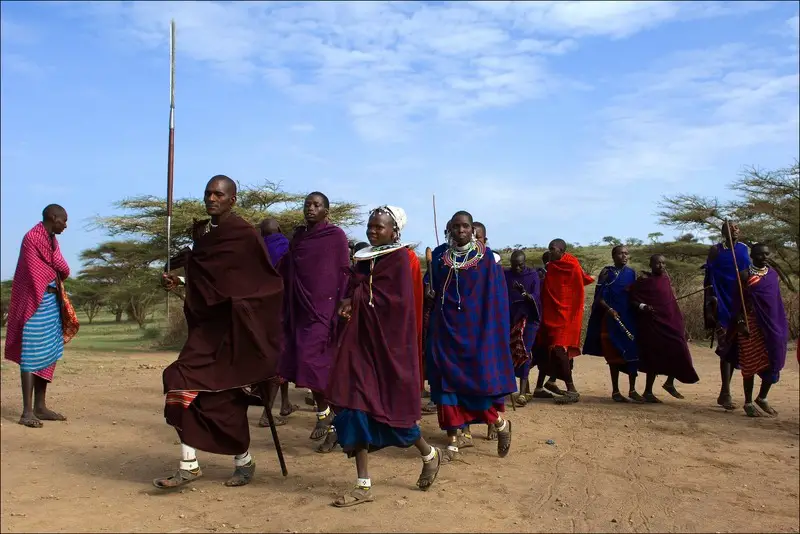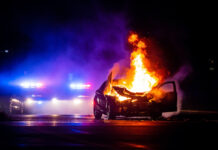Paul Mackenzie, the leader of the Good News International Church, and 95 others are charged with several crimes, including murder and terrorism, in connection with the deaths of at least 429 people in Kenya.
The charges, announced on January 15, 2024, by Kenya’s Department of Public Prosecutions, come after a disturbing discovery of mass graves in the Shakahola forest, about two hours west of Malindi.
Mackenzie, a self-proclaimed pastor and former taxi driver, was arrested in April last year following the gruesome discovery.
Prosecutors allege that Mackenzie and his followers moved to Shakahola forest, where they prepared for the end of the world.
According to witness statements and investigation findings, Mackenzie instructed his followers to fast until death as a means to meet Jesus.
This alleged directive resulted in the deaths of many, including children, who showed signs of starvation and physical assault.
The bodies of 429 people, unearthed from grave sites in Shakahola, revealed that while most died from starvation, others, including children, appeared to have been victims of strangulation, suffocation, or beatings.
The Kenyan prosecutors have said that there is sufficient evidence to charge Mackenzie and the other suspects with offenses such as murder, assault, and facilitating the commission of a terrorist act.
Additionally, some of the suspects are facing charges of subjecting a child to torture.
Mackenzie, who denies any responsibility for the deaths, claims that he closed his church in 2019 and hence could not be accountable.
He is currently serving a prison sentence for operating a film studio and distributing films without a valid license.
A court in Kenya directed that Mackenzie, along with 30 of his associates, receive mental health assessments prior to facing charges for the murder of 191 children. These charges are in relation to the discovery of the children’s bodies that were unearthed.
Of the 95 suspects being charged, 64 were initially treated as victims and relocated to a rescue center. However, investigations later revealed their involvement, particularly as many had lost children in the forest and provided false identities to the authorities. Mackenzie’s wife is among those being charged with serious crimes.
Several of the accused were brought into the Mombasa courtroom in such a weakened state from an apparent hunger strike that they could not stand or even open their eyes to face 238 counts of manslaughter.
The courtroom scene was one of stark gravity as the chief magistrate, Alex Ithuku, oversaw the proceedings in the coastal city of Mombasa. Over the span of four and a half hours, charges were read out against Mackenzie, his wife Rhoda Maweu, and others implicated in a case that has drawn widespread condemnation and concern. The defendants, visibly emaciated and frail, entered pleas of not guilty.
The case took a critical turn when it was revealed that some of Mackenzie’s followers, too feeble to walk or see, had to be carried into court, prompting the magistrate to order their immediate hospitalization. This decision underscored the severe physical toll of the hunger strike the suspects reportedly embarked on while in custody, protesting their arrest and prolonged detention without bail.
Paul Mackenzie, who founded the Good News International Church, is accused of inciting his followers to fast unto death as a means to meet Jesus before the purported end of the world. These allegations, coupled with charges of murdering 191 children found in dozens of shallow graves across the church’s property, have made the case one of the most shocking and tragic in Kenya’s recent memory.
Further complicating the matter, the court’s decision to provide medical care to the suspects highlights the ongoing human rights concerns within the Kenyan justice system. The suspects had been held for over 10 months without bail, a point of contention that has drawn criticism from various quarters regarding the violation of constitutional rights and the ethical treatment of detainees.
The government’s response, including the declaration of the Good News International Church as an “organized criminal group,” points to a larger issue of religious organizations operating without oversight, sometimes with deadly outcomes. This case has prompted calls for stricter regulation of fringe denominations and a reexamination of the protections afforded to vulnerable members of society.
As the legal process unfolds, with the suspects now receiving the care they urgently require, the nation watches closely. The case against Paul Mackenzie and his followers, while deeply unsettling, serves as a poignant reminder of the potential dangers posed by extreme religious beliefs and the importance of vigilance, compassion, and justice in addressing such challenges.
The events in Mombasa represent not just a legal battle but a moral and societal reckoning with the boundaries of faith, the responsibilities of leadership, and the imperatives of human rights.
An inquiry report by the Kenyan Senate house indicated that the criminal justice system failed to deter the heinous act by pastor Mackenzie, despite his previous acquittal of charges of radicalization in 2017 and accusations.
This case, known to authorities as the “Shakahola forest massacre,” has brought to light the challenges faced by Kenya in regulating unscrupulous religious movements and churches in a nation of over 53 million people, with more than 4,000 churches registered.











